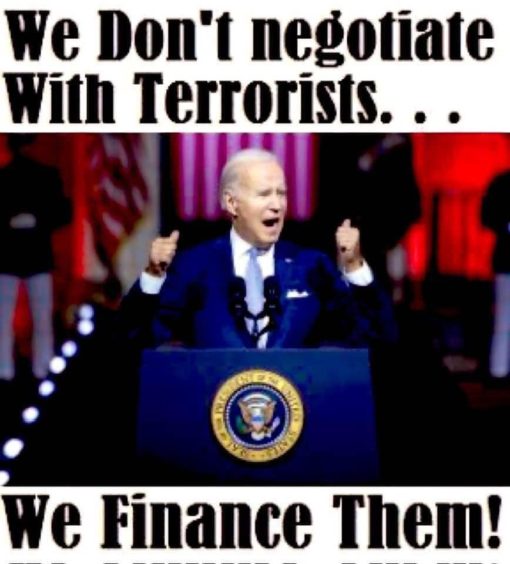We Don t negotiate With Terrorists
We Don t negotiate With Terrorists - We Finance Them
The belief that President Joe Biden is funding terrorism by engaging financially with Iran likely stems from the contentious and complex history between the United States, Iran, and the broader international community regarding Iran's nuclear program and its support for various groups in the Middle East. Critics of engaging with Iran argue that financial transactions, including lifting sanctions or unfreezing assets, could indirectly support activities considered as terrorism due to Iran's known backing of groups like Hezbollah and its involvement in Syria, Iraq, and Yemen. These concerns are amplified by Iran's designation by some as a state sponsor of terrorism.
The controversy may also be rooted in specific policy decisions, such as those related to the Joint Comprehensive Plan of Action (JCPOA), commonly known as the Iran nuclear deal. The Biden administration has expressed interest in returning to or renegotiating this deal, which was initially entered into under President Obama but from which President Trump withdrew. Critics argue that easing sanctions and providing Iran with economic benefits as part of the deal could increase Iran's capacity to fund groups that the U.S. and its allies consider terrorist organizations. The debate hinges on the balance between preventing nuclear proliferation and the risk of empowering Iran's regional ambitions, including its support for non-state militant groups.
Moreover, the narrative that financial engagements with Iran equate to funding terrorism can be influenced by how such actions are framed within political and media discourses. In a polarized political climate, decisions by the Biden administration to engage with Iran are often scrutinized through a lens that emphasizes national security risks and the potential for empowering adversaries. This scrutiny is sometimes fueled by misinformation or selective interpretations of the outcomes of diplomatic negotiations. It's important for discussions on this topic to critically assess the direct and indirect impacts of foreign policy decisions, acknowledging the legitimate concerns about funding groups with terrorist affiliations while also considering the potential for diplomacy to mitigate broader threats.
